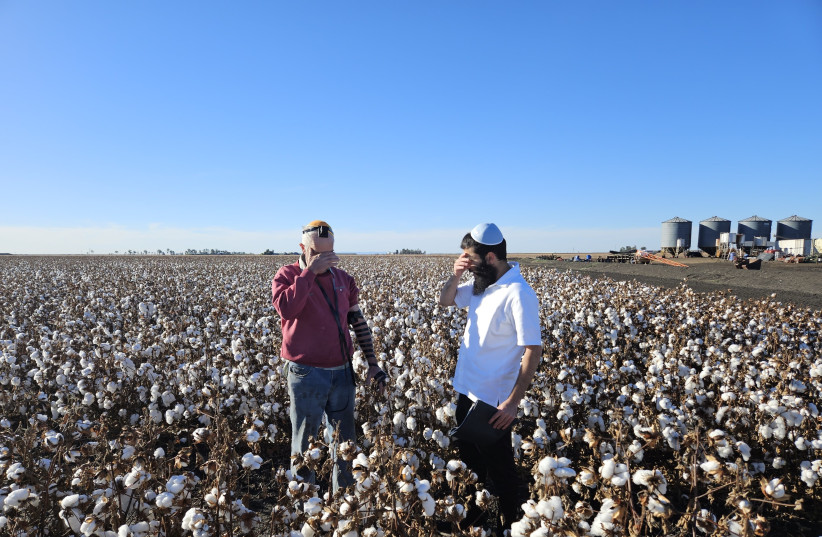Three weeks into the conflict with Hamas, Israel is faring relatively well from a logistics and supply perspective, though certain crops may be in somewhat shorter supply in the near future, according to Leket Israel Chairman Joseph Gitler.
“75% of vegetables in this country are grown in the South. A lot of those come from the Gaza Strip, and a lot of those crops are at risk,” he noted to the Jerusalem Post, explaining that many crops in the war-afflicted region are “in the ground spoiling,” and that if the conflict takes long enough, the next planting cycle will likely be impacted.
“At some point coming up, we are going to have less of certain types of crops and that could lead to the Agriculture Ministry allowing for imports where they normally might not allow,” he continued.

Farm workers are in low supply
A key issue he pointed out is that the ongoing situation has made it challenging to find workers willing to tend to these crops, resulting in significant losses for farmers. “A lot of it is a closed military zone. So most of those crops are gonna get lost. There's actually probably nothing to do to save them unless I don't know, you know, unless the war ends tomorrow. So that is definitely going to be an issue.“
Even in regions not directly affected by rocket fire, there is a growing sense of insecurity among workers and volunteers, making it difficult for them to venture into the fields.
Additionally, some areas along the Lebanese border, traditionally fertile for agriculture, are experiencing evacuations, which could further strain crop production. “Those crops could be at risk if people don't feel comfortable going and picking them,” he said.
Gitler mentioned that Leket Israel is actively reaching out to farmers in need of help and recruiting volunteers to assist with harvesting. This effort aims to address the shortage of workers and prevent more crops from going to waste.
“We are reaching out to all the farmers we normally work with and taking calls from many other farmers around the country who simply have a shortage of workers and are looking for help,” he explained. “We have 1000s of people who joined our WhatsApp group and who are comfortable going out in the field lending these farmers a hand.”
“It’s not a solution,” Gitler admitted. “It's a band-aid. But it's a big help to the farmers.”
A bottomless well of need
In response to the crisis, Leket Israel initiated a fundraising project to purchase meals, supplies, and baby food for those affected. However, Gitler stated that the scope of their assistance has expanded significantly due to the growing number of displaced individuals who require support.
“Every day there's more and more displaced people, and that's only in addition to the other populations that we work with, who are no richer just because we're in this crisis. They still need help, but now you have this whole new sector of people who perhaps were not needy beforehand, and won't be needy, please God, when they can go back to their homes,” he said.
“Some aid has been provided by the government, and some of it may be provided by Leket or other initiatives that have stepped up,” Gitler said. “But sometimes, you know, no one takes care of all your needs. And if you don't have any money in your pocket, then then you need help. So we're really, we're just trying to find those pockets which need help — and it really feels endless right now.”
